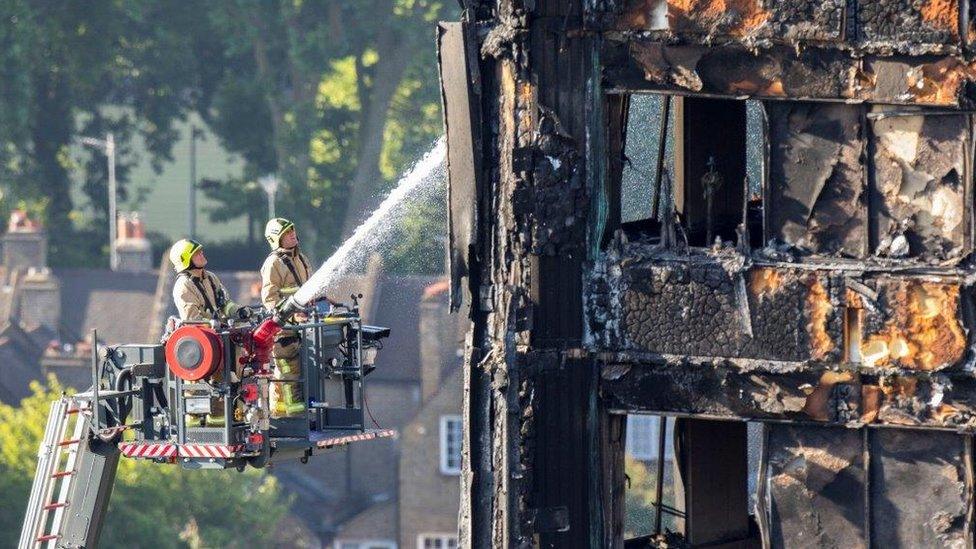Grenfell: Government changes controversial cladding advice
- Published
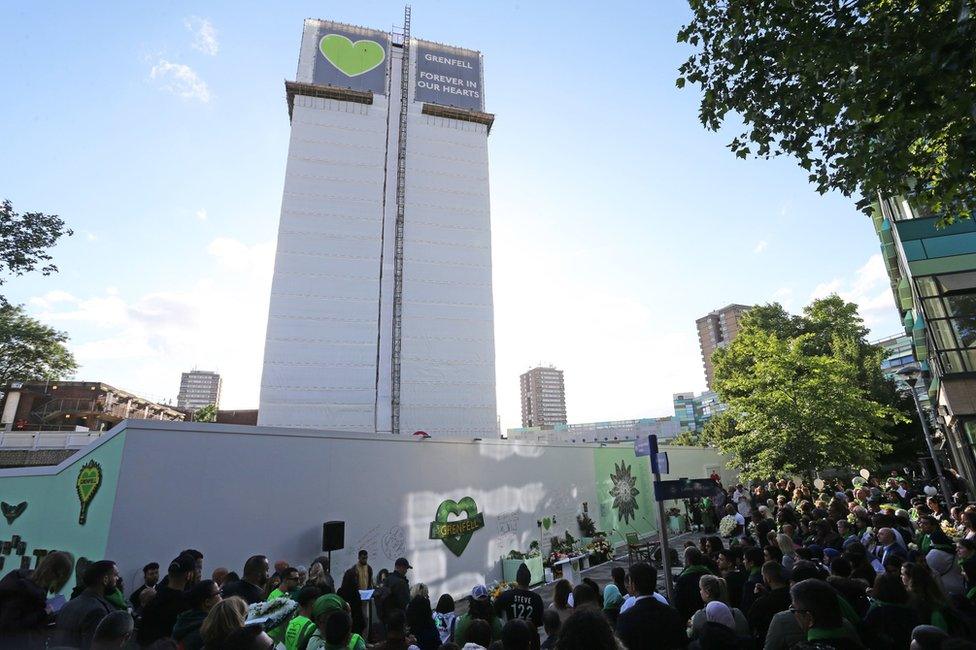
The fire at Grenfell Tower killed 72 people
The government has changed the wording of technical advice blamed for playing a part in the Grenfell Tower fire.
Officials now say combustible cladding panels should not be used on tall buildings after two years of criticism that its guidance was not clear.
Combustible cladding allowed the flames to spread at Grenfell Tower - and there have been claims the guidance did not state it should not be used above 18m.
The government told the BBC its original wording was not "misleading".
But the official advice is at the centre of attempts to explain why potentially dangerous cladding was installed on hundreds of buildings in England and Wales, including Grenfell Tower.
Architects and housing officials are under investigation following the fire in 2017 - which killed 72 people - but some experts believe government advice left "wriggle room" for unsafe materials to be used.
Filler material
The crucial clause states that, on tall buildings above five storeys, any "insulation product" or "filler material" should be of limited combustibility - in other words, not likely to spread fire.
It did not say specifically that this included cladding.
Yet the government has argued since the fire in June 2017 that "filler material" did refer to cladding, because it is made of plastic "filler" sandwiched between two sheets of metal.
In response to the BBC's questions, the Ministry of Housing, Communities and Local Government said it clarified this in an "advice note" in June 2017 - after the Grenfell Tower fire.
The Grenfell Tower Inquiry's own experts disagreed that the meaning of the clause had been made clear.
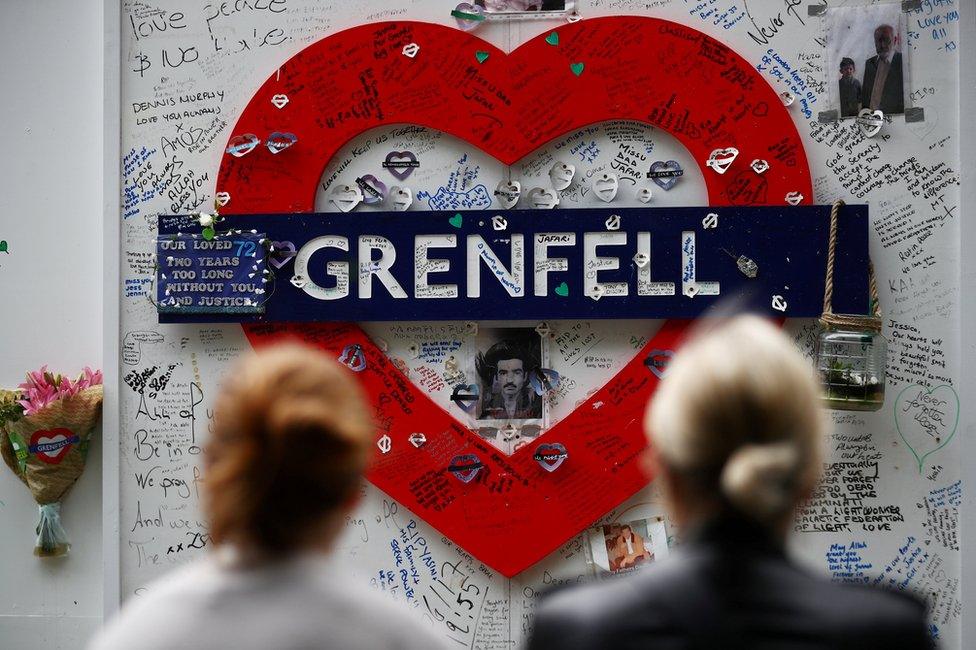
Messages of condolence were left at the base of Grenfell tower
In an apparent U-turn, the government then banned the most combustible forms of cladding last year, removing loopholes which allowed this section of the guidance to be ignored in certain circumstances.
But only now has it changed the guidance itself.
It now says "any insulation product, filler material (such as the core materials of metal composite panels...) should be of limited combustibility".
The government confirmed it had made the change so that potential "misinterpretations are avoided".
Hundreds of buildings had combustible cladding installed to help insulation and keep them waterproof.
It is now being stripped off, costing councils millions of pounds and private home owners thousands.
Next year, the Grenfell Tower Inquiry will begin considering the very real possibility that the deaths and the ensuing crisis in building safety was partly caused by the fact that large parts of the construction industry either did not know what the advice was, or were confused by it.
Many contractors turned to expert assessors to tell them what was safe. The British Board of Agrément (BBA) - which reviews product tests and issues certificates to inform the industry - was one.
But a BBC investigation last year found the board did not know the Grenfell Tower cladding had received a series of poor test results.
Police investigation
The manufacturer of the panels, the global metals giant Arconic, did not tell the BBA.
Arconic has been contacted by the police inquiry, the Grenfell inquiry, and is facing legal action in the US.
And the government itself was warned several years before Grenfell that the building regulation guidance was not clear.
In 2009, six people died in a fire at Lakanal House in south London, partly blamed on combustible cladding.
The jury and coroner at the Lakanal House fire inquest advised the government in 2013 to review the regulations "to provide clear guidance... with particular regard to the spread of fire".
The Conservative housing minister at the time, Eric Pickles, responded: "My department is committed to a programme of simplification of building regulations."
But the programme was not going to be rushed. More research would be needed. Consultations resulted in calls from the construction industry for clarity and minimum standards.
By the summer of 2017 the building regulations had still not been improved. Then Grenfell Tower erupted in flames spread by combustible cladding.
- Published30 September 2018
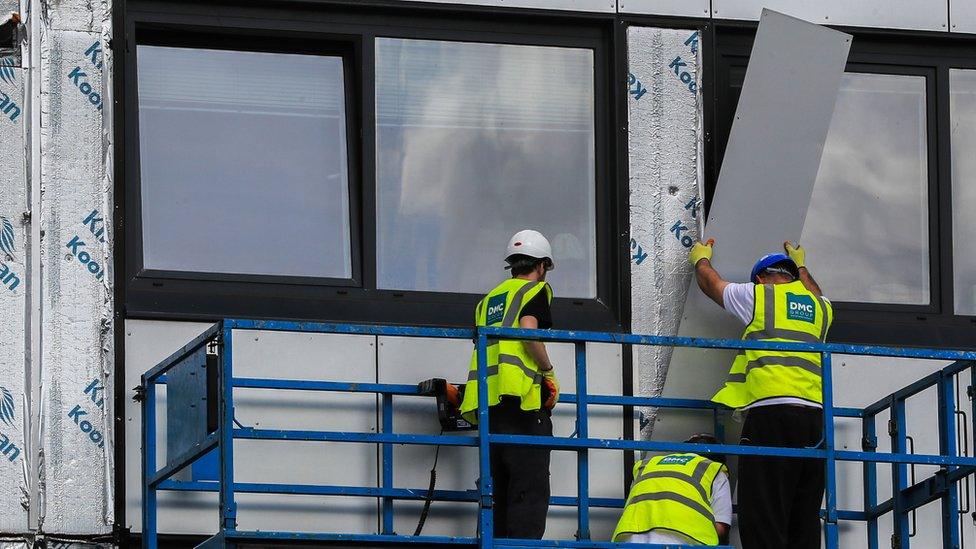
- Published17 May 2018
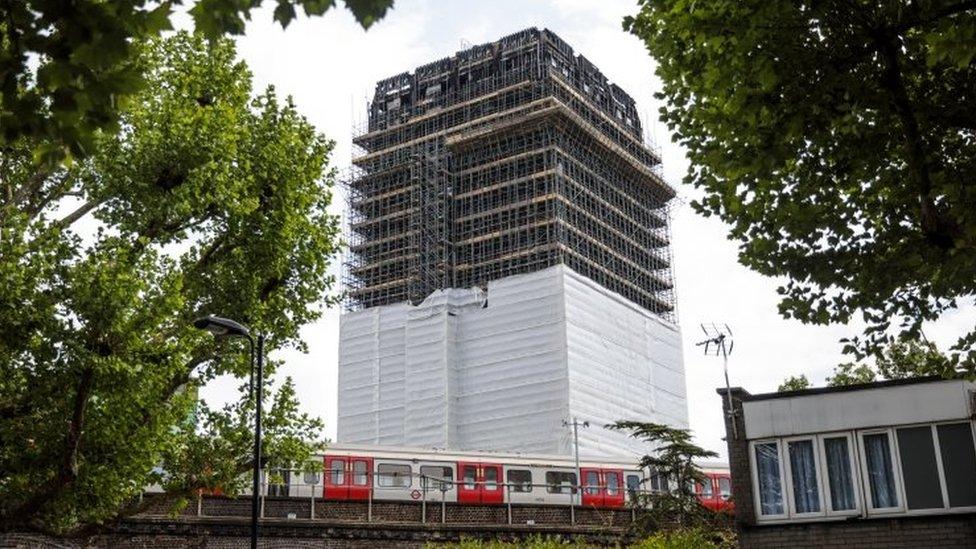
- Published5 April 2018
